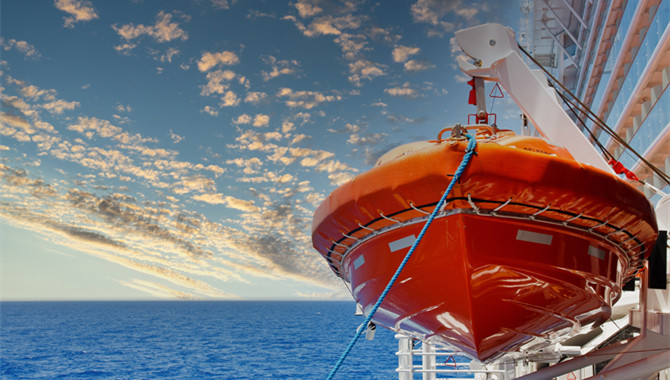 The Origins of International Safety Management
The Origins of International Safety Management
Following several sea accidents during the late 1980s, there was widespread concern over the safety of maritime operations. The decade had seen a series of catastrophic sea incidents, the most serious one being the sinking of the Herald of Free Enterprise's Ro Ro Ferry as it sailed from Belgium to England, killing 193 passengers and crew. The topic of human error leading to compromised safety and devastating consequences became a prominent one. In October 1989 the International Maritime Organization (IMO) adopted a new resolution which specified guidelines on management for the safe operation of ships and for pollution prevention.
Since then, the ISM continues to provide an international standard for the safe management and operation of ships at sea. The ISM Code mandates that commercial maritime companies assess all identifiable risks to their ships, personnel, and the environment, and establish appropriate safeguards.
All commercial vessels are now required to have a Safety Management System (SMS) in place to establish safe ship management procedures. The SMS must also include procedures for reporting accidents and any non-conformities with the ISM Code as well as procedures for preparing for and responding to emergency situations, and procedures for internal audits and management reviews.
Rigorous Requirements
SMS requirements are rigorous; constant attention to them is necessary to maintain full compliance. Any identifiable deviation from the SMS requirements that poses a serious threat to safety or risk to the environment requires immediate corrective action.
These deviations can be so minor that they are easily overlooked. For example, a faulty fire alarm system, problems with the oil and water separator system, or an insufficient number of life rafts are potential safety threats that need to be addressed, reported, and documented.
The validity of documents is another challenge, since any changes to the status quo require documentation to be amended and updated accordingly. Such changes can include, for instance, a ship's change of flag, amended safety precautions for different cargoes, or a change from standard lifeboats to free fall lifeboats.
The main challenge is the pure volume of documentation demanded by the ISM code. All procedures need to be properly recorded and the documentation must be readily available to all relevant stakeholders. In times of heavy workload or difficulties in maintaining schedules, it is easy for errors or omissions in the reporting process to occur.
 Challenging Audits
Challenging Audits
Audits, both internal and external, are undertaken to check on possible SMS deficiencies and non-conformities. They also measure whether vessel SMS' comply with ISM Code requirements. There is, however, no guidance as to how to carry out an internal audit, nor what it should include. The guidelines are focused almost entirely on the necessary procedures and documentation.
Internal audits are carried out at least once a year, the main objectives being to verify compliance with regulations, to ensure that the SMS is being properly implemented, and to supervise actions taken to improve safety performance. The audit is headed by a designated shore-based person who issues a report on the findings. The company and the vessel personnel are required to act on the report, with both corrective and preventive actions taken. All such actions must be accurately documented.
A comprehensive SMS system also requires that shoreside teams have a high level of oversight of onboard activities. This, in turn, necessitates the constant exchange of documents between ship and shore, which can present a challenge, especially when vessels do not have consistent internet access or a functioning digital repository for documents.
The amount of documentation exchanged between ship and shore is likely to increase in the coming years, coinciding with the growth in regulations. In particular, the volume of environmental regulations has increased considerably in recent years, and this growth is expected to continue as the IMO works towards 2030 and 2050 decarbonisation targets. This will add to the workload in accurately completing all required documents, and with that, will also increase the potential for human error to occur.
A Digital Way Forward
Manual documentation and handling of paperwork continues to be the standard and most common method for dealing with SMS requirements, despite the fact that digital technology is available to simplify and improve the efficiency of this task.
The most common cause of compliance deficiencies relates to documentation. Too often, vessels are replying on outdated procedures, checklists, certificates or work permits. Forms and checklists are sometimes improperly completed, and signatures can be missing. Incident reporting is not always properly processed, and records are sometimes unable to be produced for the auditor.
Approximately half of audit protocols relate to documentation, and many non-compliance observations are due to incorrect manual completion and handling of documents. Digital systems virtually eliminate this from happening and serve to speed the entire process.
As more and more ‘official’ documents, such as class and statutory certificates and some flag registry certificates, are available in digital format, it makes sense that SMS handling should be in digital format as well. Furthermore, there a few flag states, the Marshall Islands being one, that consider International Ship and Port Facility Security (ISPS) to be part of the ISM Code. In such cases, the audits for ISM, ISPS, and the Maritime Labour Convention (MLC) are usually carried out simultaneously, and there is a clear lack of efficiency if the documentation for each code is held separately in different locations. Digital solutions overcome this challenge.
Contrast such difficult and time-consuming manual handling with a holistic, digital system that is dynamic, inter-connected, and easily accessible by all stakeholders. Efficiency provided by digital technologies is driving change throughout the maritime sector, and perhaps nowhere is this change more needed than in the management of SMS requirements.
To find out more about how OneOcean can help your teams establish an efficient digital SMS, visit
www.oneocean.com/products/docmap/.
The opinions expressed herein are the author's and not necessarily those of The Xinde Marine News.
Please Contact Us at:
media@xindemarine.com



 Ningbo Containerized Freight Index Weekly Commentar
Ningbo Containerized Freight Index Weekly Commentar  Ningbo Containerized Freight Index Weekly Commentar
Ningbo Containerized Freight Index Weekly Commentar  Ningbo Containerized Freight Index Weekly Commentar
Ningbo Containerized Freight Index Weekly Commentar  BIMCO Shipping Number of the Week: Bulker newbuildi
BIMCO Shipping Number of the Week: Bulker newbuildi  Ningbo Containerized Freight Index Weekly Commentar
Ningbo Containerized Freight Index Weekly Commentar  Ningbo Containerized Freight Index Weekly Commentar
Ningbo Containerized Freight Index Weekly Commentar